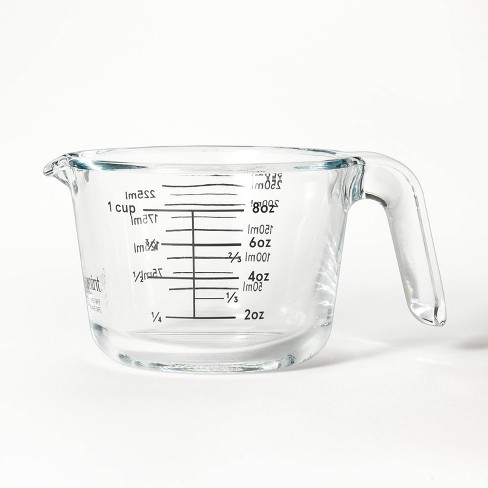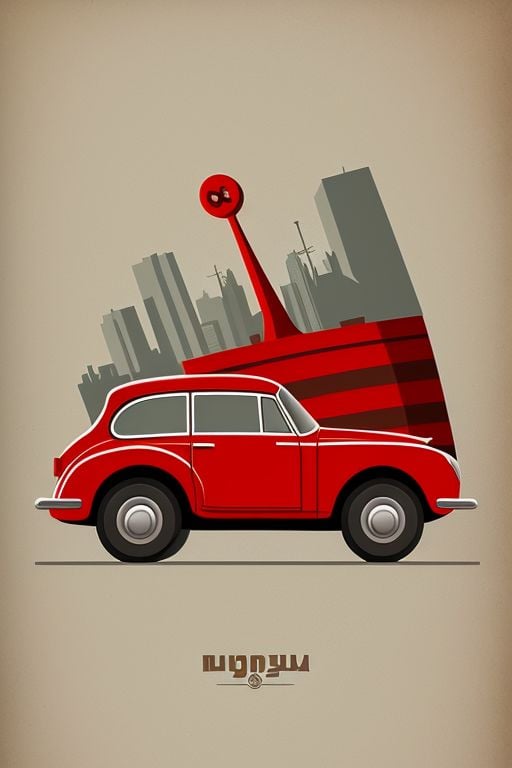“The downside is that the mug is also 180°C now.”
“And it tastes faintly of the bacon I made for breakfast.”
Nah see they’ve got one of those fancy dual air dryers in the picture. One side is clearly for food and the other for beverages.
Yeah but you’re not supposed to put the cup in with it. You pull the tray out and pour it into one.
Or maybe the 2 cup method?
No that’s 2 girls and only one cup
How is that a downside?
Somebody had been considering what could be worse than microwave tea.
There’s nothing wrong with microwaving water. It’s all just getting water molecules to move faster.
Thats how I make my teas. Boil it in a glass measuring cup, then pour it into a mug with the tea.
TechnologyConnections made a video about it.
How do you measure glass in a cup?
Carefully.
Edit to clarify: you pour the glass in a cup like this

As someone in a Commonwealth country, it is so weird to me that people would microwave a jug of water to make a cup of tea instead of buying a $5 kettle.
Counter space, cabinet space.
Yes, but this is something you are using 5-10 times a day… right? Something else can go.
For someone like me, no.
microwaving anything is microwaving the water it contains
I’ve seen microwave tea as putting the tea bag in the cup and then microwaving it, which is slightly not ideal imo, but to each their own
That is probably for safety. If you microwave water without anything for it to nucleate on, then it can be liquid above the boiling point. If you then put a tea bag in, it will explode into steam in your face.
That’s really only an issue for microwaves that don’t have the turntable.
Bad idea if there is a staple in the tag on the tea bag.
But really is just boiling water. Heat is heat.
Alternatively, the best use of an air fryer.
Americans will do anything other than buy an electric kettle.
Americans who drink hot tea have them (source: have had one for like 20 years).
Americans in general are just more hot coffee cold tea people. Exceptions abound of course, but in generalities.
I drink hot tea and cold coffee lol. I also drink hot coffee though.
We have replaced your American passport with Vietnamese to better accommodate your beverage preferences, please enjoy your new citizenship.
Pourover coffee is the shit though
🤷 I think all coffee is shit, personally
There is literally a kettle on the left lower side of the image (likely deliberately as it seems awkward having it in front of the air fryer like that)
in my experience, it is quite hard to find a place for a kettle that isn’t at least a little awkward
this. they are always in the way and fit nowhere.
As opposed to an air fryer, which is a way better use than the food prep space it takes up?
OOP uses centigrade and spells color as “colour”; they’re probably not American.
And you call Celsius centigrade, which means you’re probably not young.
I did just drink some Metamucil…
I’ve heard electric kettles are slower here because of the limits of our electrical system. I do have a kettle for the stove, though. I also rarely drink tea.
Standard outlets in the USA are 120v at 15A (1800W max peak, 1440W max continuous). In comparison, standard UK outlets are 230v at 13A (2990W peak)
This also affects other things. For example, standard electric heaters (resistive heat) can’t get as hot in the USA.
Edit: Also, dryers in countries like UK and Australia don’t need a special type of outlet.
Due to a quirk of unifying 2 standards, Europe and the UK, the range is 216.2 volts to 253.0 volts.
That encompasses infrastructure built to a tighter tolerance around 220V in Europe and infrastructure built to a tighter tolerance around 240V in the UK (and Australia).
We expect 3150W out of a kettle most of the time. Our heaters will say 3kW.
Usually you’ll find a few volts over 240 out of our outlets and that’s to design spec.
Thanks for the info! I’ve never actually lived in the UK so I was just guessing based on what I’ve read online.
I was going to use Australia as an example (since I was born there) but standard outlets in Australia are only 10A so they’re not quite as powerful as the UK ones :). There’s 15A outlets but they’re not very common.
my electric kettle takes maybe 20 seconds to get to boiling water here in the USA
My friends just put a euro style 220 outlet on their counter and ordered a kettle online. Since they were building the house new it was basically no different than buying a 110v kettle.
You can install a European outlet in a US home? How is it compatible?
American wiring is center-tapped ~240V; typical 120V outlets are from line on either side of the tap to the neutral, while dryers, stoves, etc. are 240V line to line. So they would have wired it like a stove, but then put in a euro style plug instead of a stove plug
You just run 220 from the panel to it. Almost every US house has 220 outlets for the dryer and stove anyhow. All you’re doing is using a different shaped plug, and like, wires are wires, they fit into a euro plug the same as they fit into a NEMA plug.
Technically it wouldn’t be to us code. It would be way smarter to just install a NEMA outlet and use an adapter, or even better just replace the plug on the kettle.
I don’t actually live in the US, just somewhere that happens to use 110 and NEMA outlets.
Also I think the theory with the euro plug was that when the kettle died they could just buy another and not have to modify anything.
That’s true, because you use a 110V based system you have less power available to the kettle. It’s still a lot faster than an electric stove though. Not faster than an induction stove, probably.
We have a 2 phase, 120v or 240v. Standard wall outlets only have 1 phase at 120v and a 15amp limit.
Residential service is a single split 240v phase off of a 480V 3-phase line, while something like an apartment is 2 phase 208Y, with a single phase is 120V.
2 phase 208Y
3 phase 208. But I imagine you know that, and just fat fingered the wrong key
Ah, I guess I meant that you’re getting 2 of the 3 phases, which is 208V phase-to-phase, or 120V phase to neutral.
Ah, that makes sense
Split phase; two phase is something else that’s not really used because it’s a massive pain in the ass compared to single or three phase
deleted by creator
There’s literally the handle of an electric kettle on the left side.
No this is something far worse: someone in the UK whom has strayed from the light and committed heresy!
May the Tea Gods have mercy upon them, for I shall have none!
We have an electric kettle, husband uses it for instant coffee; before we got together he used the microwave to boil water. The kids use it for tea. I use it for hot water for Moka pot, boiling water for grits, whatever needs hot water.
Electric kettle, microwave, and coffee grinder are the only appliances that live on the kitchen counter, all the other things are in the pantry.
Implying Americans know what the metric system is.
I am an American and i own an electric kettle and use it frequently. I switched to an electric kettle after accidentally turning my microwave into a smoke bomb when I put instant ramen in there and forgot to add the water. Now I only make instant ramen with hot water from a kettle or on the stove.
American here breaking stereotypes i have two electric kettles. A bright orange secura and a nice gooseneck
Okay this is a shitpost, but ffs don’t try this. That’s a small electric fan-forced oven. There’s a nonzero chance the airflow will splash water all over the inside, which is absolutely not liquid proof. Water + electricity == bad.
I see your point. But how the hell is the mug not going to be hot either and you are able to just lift it out?
I mean that’s true too, assuming you don’t destroy your air fryer first.
Are you sure about the waterproofing? You can usually steam in an oven.
Got an air fryer here with a steamer mode, so that definitely doesn’t have moisture-sensitive electronics inside the cooking part!
Probably depends on how fancy the air fryer is.
I’ve got a small, cheap air dryer. I think it was maybe $25 when I got it? It’s just got two settings - a knob to set the temperature and another knob to set a timer (analog timer that makes a ding noise when it’s done)
Inside it’s just a heating element like the ones you’d see on an old-school stove top, and a big fan to blow the hot air downwards. I doubt there’s any electronics in it - it’s probably just basic electrics. I don’t think the heating element would like being splashed with a liquid.
Yeah, its basically just a heating element with a fan, there should be nothing to break even if exposed to liquids.
Just stick it in a plastic bag, duh
Not liquid proof? How can you cook moist things in there then? Or things like chickens or beef joints etc that drip so much liquids?
Magic machine goes bum bum
Really though, so many Americans would have their cooking lives enriched by an electric kettle.
My parents told me, “be careful the heating elements catch fire, there’s little to no safety mechanism, you can’t leave them alone!”
It’s a kettle…
People either don’t know they exist or have some weird thing with them. Gives me the same vibes as cultures that don’t sleep with the fans on lol.
Well they aren’t wrong. They just come from a time with a lot less consumer safety. And we’re headed back with fake UL stuff being sold in stores. We kind of grew up in a golden age of consumer safety. We even made jokes about “don’t use grandma’s extension cord”.
Not sleeping with the fan on is a way to save face, at least in Asian cultures. In which it’s basically the families out to admit their loved one committed suicide.
They say if you have a fan on in the night and the door closes, it creates a vortex and somehow sucks out all the oxygen.
My weird thing with them is a lack of counter space
Not Usonian but I’ve never understood the electrical kettle, I just use the microwave for infusions and the like. And for everything else cooking related the stove.
Am I missing something?
Yes, kettles are more efficient at boiling water vs a microwave. On top of that, you don’t need to guess the time it’s going to take, it just goes until the internal temperature sensor reads 100degs and it shuts itself off with a little ‘clunk’.
Thanks for the enlightening, now I understand.
Still microwave for me since while I do enjoy infusions I don’t make them that much to justify the expense and the extra stuff laying around.
I just use boiling water for so much dehydrated shit in addition to making French press coffee or iced tea. Stuffing, instant noodles, oatmeal, whatever. Sometimes I also kickstart boiling water and then pour it into a pot. They’re just so much faster than regular stoves because of the way the heating element is placed.
You can probably find a second hand kettle for 5$ bucks. But if you don’t use it often, it might take too much space for its use.
But you already have the microwave, so unless your electricity is expensive, it doesn’t really make a difference.
No worries, thanks for listening! As with all these things the efficiency bonus is slight, so unless you’re a heavy user it likely won’t represent a saving vs. the energy taken to make the kettle in the first place. If it ain’t broke don’t fix it.
Out of my own curiosity… what’s an infusion?
An infusion is, according to WordRefence, an herbal tea (tho technically speaking coffe is an infusion too). This might be just me being pedantic but in Spanish everyone says tea too and they could be preparing ginger or whatever other plant instead.
Sorry for the rambling. 😅
some cultures refer to aromatized or herbal tea as infusion
Interjecting with some slight pedantry, but only because I think it’s interesting.
There may be some kettles that just switch off at 100C, but those would be pretty terrible kettles, as they could only boil water at sea level. Go up to 10,000 ft. of elevation, or put something in them that boils at a lower temp than water, and that kettle would just keep running until all the liquid is evaporated.
Most kettles (I think, this is totally based purely on anecdotal evidence, I haven’t actually gone out and examined most kettles) detect the presence of boiling in general, rather than a particular temperature. This allows them to work on a variety of liquids at a variety of pressures (or elevations). They do this with some clever piping and a bi-metallic strip. Basically some of the vapor of whatever liquid you’re boiling is directed through some piping down to the bottom of the kettle, where it passes over a bi-metallic strip and heats it up. Once the strip heats up enough (to a temp much less than the boiling point of water or most other household liquids you find yourself in need of boiling), it buckles, and does electrical circuitry things that end up turning off the heating element.
There’s a Steve Mould video on the topic with a much better explanation that’s super interesting, for those of you into nerdy sciency type stuff: https://youtu.be/VzqN4Cn8r3U
Oh neat, how do those kettles that have a temperature selection thingy for different kinds of tea work then?
I imagine it’s a combination of a thermometer plus the bi-metallic switch mechanism to prevent the kettle from boiling dry, with the assumption that you’ll generally just be boiling water near sea level in them. I wonder if the nicer ones have like a calibration mode or something where you can adjust the temperature setting for different altitudes though 🤔
I prefer kettle as a microwave is slower, and turns ceramic cups into lava.
Very true tho.
You can accidentally superheat your water in the microwave.
For me it’s just quick and accurate. Every tool for a job. I can make a cup quickly, to the temp I need (green/black teas, coffees etc.)
No guessing of temps or times. No need to ramp up the stove and burn all that energy.
I think most electric kettles are a bit slower there due to normal outlets only being 110V, but not all kitchens have 20A outlets(probably most do nowadays?), so the kettles made for the USA market tend to be 1.6KW so they can run off a 15A outlet if needed, whereas ones made for 240V countries tend to be 2KW.
Should still be way faster to use a kettle than an air fryer though as I’d assume the air frier would likely be limited to 1.6KW too?
American kettles are a lot faster than anything else Americans have access to, except a microwave. That does a mug of water in one minute. As a trade off it seriously degrades the mug over time.
We also just don’t really need to boil large quantities of water all at once.
120V is the American outlet. Japan uses electric kettles just fine at 100V. I think the reason they arnt super prevalent is cultural. Not speed.
The air fryer either superheats or melts the mug, depending on its material. You either scald your hands picking it up like you would grab it from the microwave, or you burn your house down.
or you burn your house down.
Probably only if your mugs are made of wood 😂
Or plastic
That’s not a mug, that’s a cup 😂
If all you need is one single mug of hot water, a microwave is the way to go.
10 minutes to boil a cup of water? How is that considered good in any way?
it’s sarcasm.
Air fryers suck at boiling water. They’re basically anti-microwaves. Everything a microwave is good at, they suck at, and vice versa.
Air fryers are for putting a crust on things. Basicly a miniature convection oven
That’s because it is basically a convection oven, it just has a basket and a few extra customizations. But, as the video notes, a convection toaster oven is not a suitable replacement for an air fryer in most cases.
That’s because it is basically a convection oven
Technically it’s closer to an impingement oven than a convection oven. I’m surprised Alec didn’t mention impingement ovens at all in the video.
Techcon is quickly becoming the XKCD of household appliances
My full size oven has a convection feature that does the same thing my airfryer does but at a much slower speed since it has to warm up for about 5 minutes first so yeah the airfryer works faster but has a smaller capacity than most toaster ovens as well as all full size ones
Air fryers are just Easy-Bake Ovens for adults.
Thats why I got a Convection Microwave. Best of both worlds!
I put microwavable things in my microwave halfway, then in my air fryer to finish.
Perfect for little pot pies. Gets the top crispy.
How do you close the door and start it if you only put the food in halfway?
Oh I don’t close the door, I just jam something in the little hole the door goes into and start it
No, no no. Lmao 🤣
Not halfway into the microwave, you silly.
Halfway into the air fryer.
Wait, you can fit your airfryer fully inside your microwave?
My microwave is bad at walking a dog. Schould I buy an airfryer? Especially in winter, I would like a machine for that.
You’re attempting to automate pet ownership?
We’re kinda skipping the whole point, like people that grind in RuneScape?
Only in winter
So they are dead silent then.
No they’re very differently loud. They’re mechanically loud while microwaves are electrically loud
Pretty sure that counts as a hate crime against the English
I played a game online with a British person and another American. British guy was talking about tea time or something tea related. I have always heard that the British took their tea VERY seriously, so I decided to test it. I asked him if he heated his water in a microwave. Don’t ask the British if they heat their water in a microwave. What followed was a man who was very passionate about tea talk just as passionately about his kettle.
Microwave for water?! I am going to spontaneously combust with rage, and you can use the heat to boil the water for your tea properly! 😡🥵🔥☕👍🏽 🇬🇧
Professor Elemental even wrote a song about it
Tea time might’ve meant dinner
Brb buying an air fryer
Good, they deserve it.
You have just united the Republic of Ireland and the United Kingdom blind rage. Congratulations.
Boiling a mug of water by blowing hot air on it is going to take a while. My guess is if someone was to try this (which I don’t recommend) it’s going to take longer than 10-12 minutes.
This is 100% a meme. There’s a kettle in the lower left corner of the picture, place awkwardly in front of the second frier drawer. and the cup would be scaldingly hot upon removing it from the air frier.
A meme? On a shitpost community? How dare you??
Me using a hardware store heat gun:
Patheticy’all don’t stick your soldeing iron inside the cup?
The flux residues give it that exta taste
I just bought a new graphics card.
Place the teacup next to the PC exhaust, and let er rip.
Shout out to Asian water boilers and warmers.
Hot water on demand, no fuss.
Asian? I mean, I know they exist in Asia, as I lived in SK and JP when I was younger, but we’ve had them in Australia for as long as I can remember, and I’m in my 40s. Westinghouse, Breville and Philips all offer countertop models, and nowadays you can also get them installed directly into the kitchen sink/counter as part of a water filtration system. (Most people prefer a kettle at home, though - they’re cheaper and less fuss to repair/replace.)
Like infrastructure designed for providing hot water (>75C) directly to the kitchen?
Damn, that’s amazing.
We only got saunas.
Least redundant air fryer usage.
This is as dumb as people ‘marinating’ diet coke by leaving it in the fridge. Can’t level with this level of absurdity.
Coke taste better at room temp anyway.
Ewww
It tastes like pickles at room temp.
Sorry i meant to say its supposed to taste better at room temp, then pepsi tastes better cold.
Who are you who are so wise in the ways of pop?
Oh using stuff not rated for those conditions could be an easy way to end up with glass in your eyes.
“Do you have any visual impairments?”
“Yes, I have glass.”
“You mean glasses?”
“Well, actually…”




























